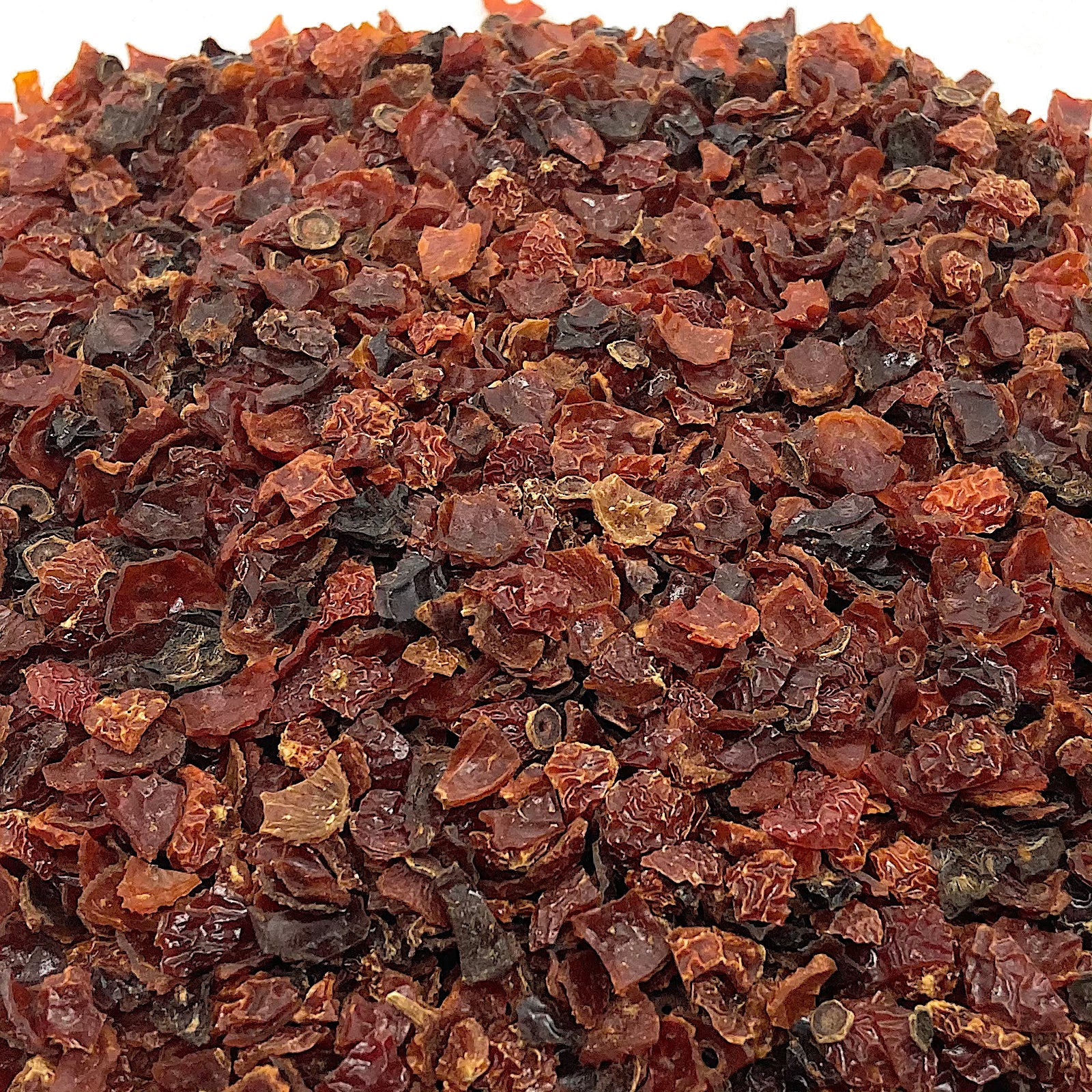Description
CHILE. Rosehip (Rosa canina) Shells, Certified Organic
Common names: Dog Rose, Brier Hip, Sweet Brier, Eglantine Gall, Hop Fruit, Dogberry, Hep Tree, Hogseed, Shatapatri, Witch’s Brier, Yeu Ji Hua
Family: Rosaceae
Our Rosehip shells are the fruits of Rosa canina, a climbing deciduous shrub that may grow from around 3 to 16 feet tall. R. canina is now considered a complex of nine different species, natives of Europe, Asia, and northwest Africa. They thrive in fertile, moist, well-drained soils and partially shady to sunny locations. R. canina was introduced into North and South America, Australia, and South Africa by European settlers and is considered invasive in many areas.
Tangy red Rosehips have long been used for making desserts, preserves, soups, and wines. They are well known as a source of vitamin C and flavonoids, and also contain vitamins A, D, and E, niacin, folate, zinc, magnesium, fructose, tannins, essential fatty acids, and malic acid.
Herbalists appreciate their astringent and nourishing properties, and have used them for colds, coughs, ear infections, diarrhea or constipation, colic, arthritis and gout, menstrual pain, sciatica, and kidney stones; as a tonic and mild diuretic; to calm stomach, bladder, and kidney inflammations; and to add flavor to teas and other herbal formulas.
A triple blind hospital study of women recovering from cesarean sections, who are often catheterized and prone to bladder infections, showed a significant drop in UTIs when Rosehips were given. Two more rigorous human studies provide evidence of Rosehips’ effects in reducing abdominal body fat in preobese patients, and significantly improving crow's-feet wrinkles and skin moisture and elasticity.
Humble, tasty Rosehips, brimming with nutrients and antioxidant power, have clearly earned a place of honor in the “everyday functional food” category of herbs!
*These statements have not been evaluated by the FDA. These products are not intended to diagnose, treat, cure or prevent any disease.









